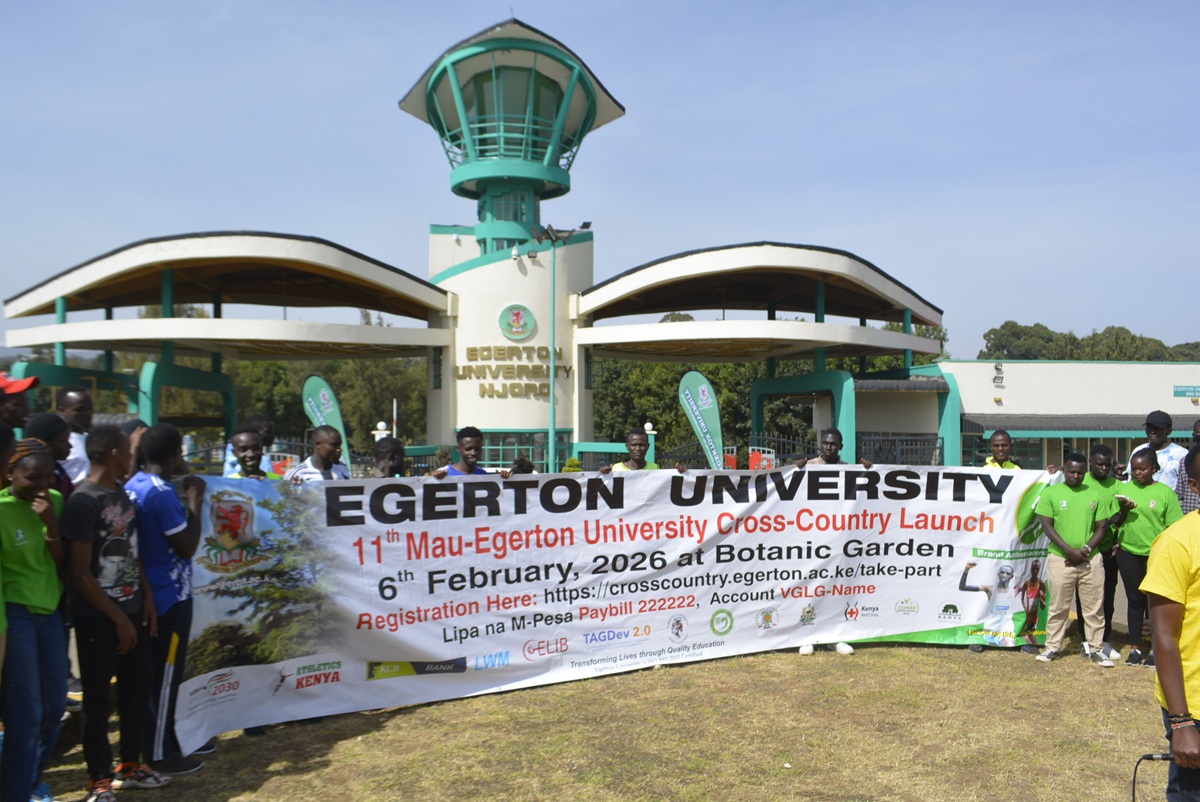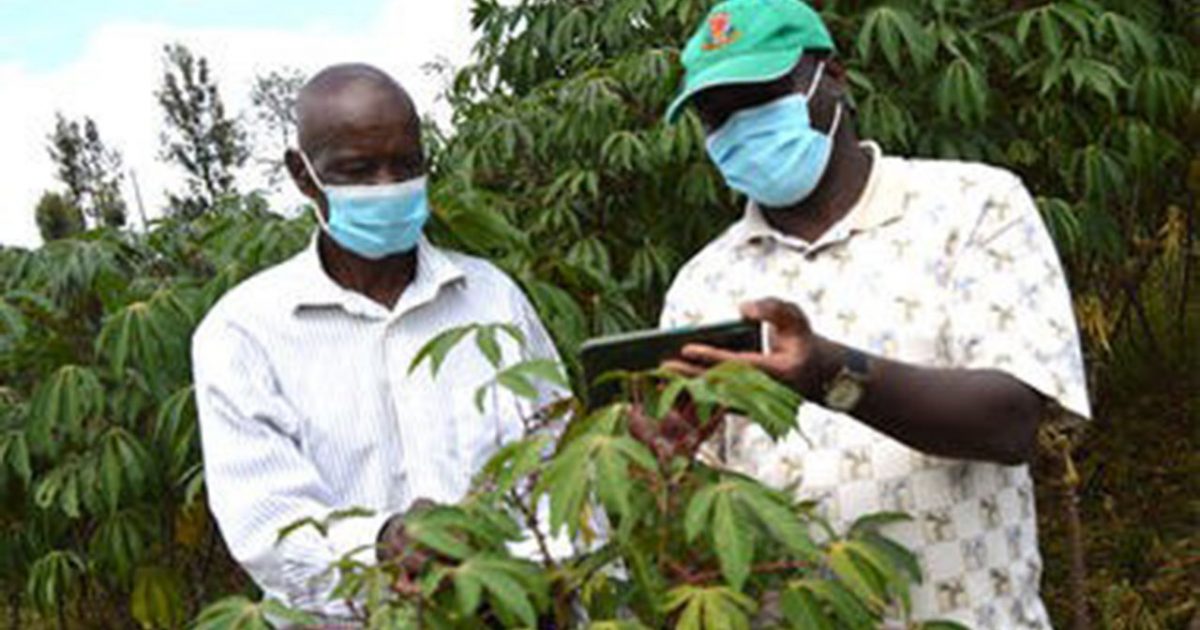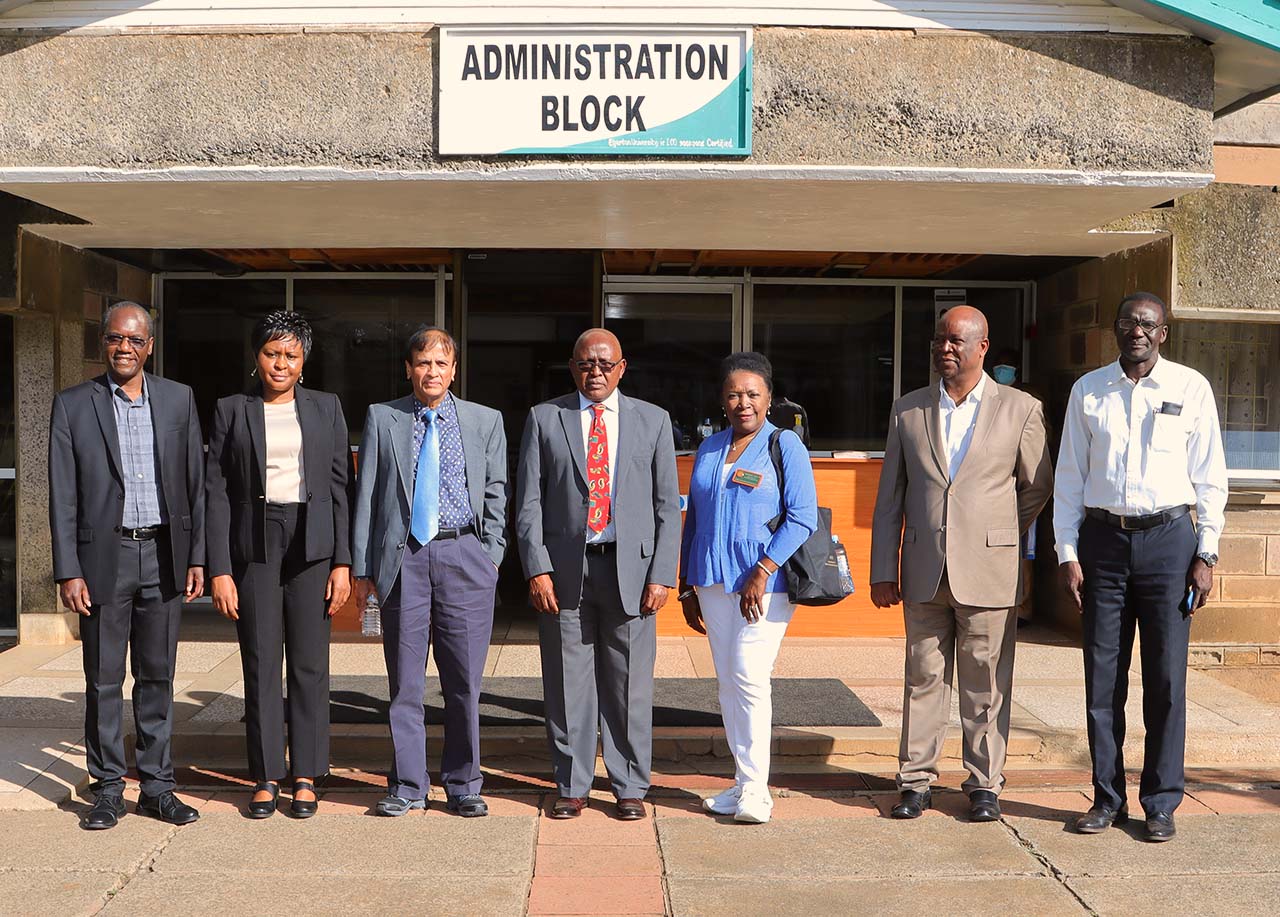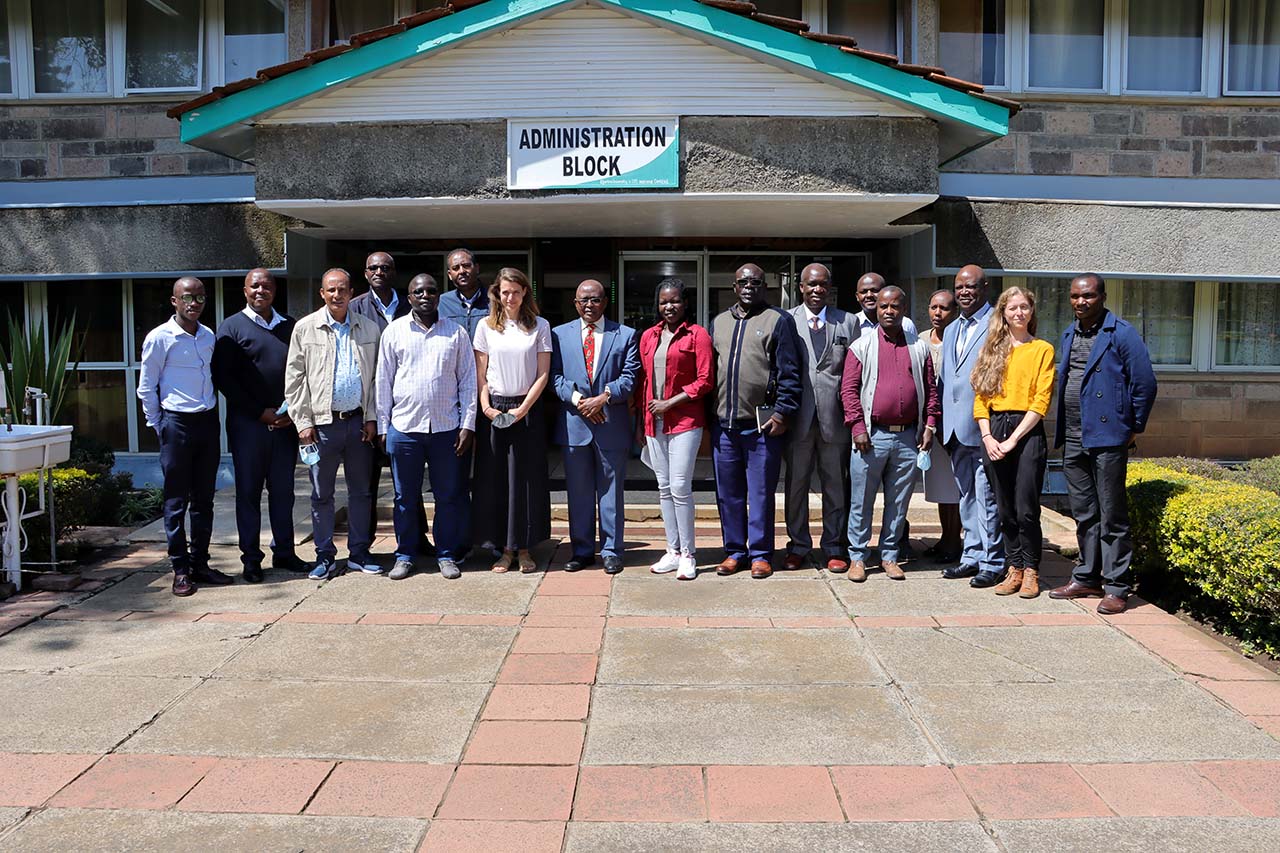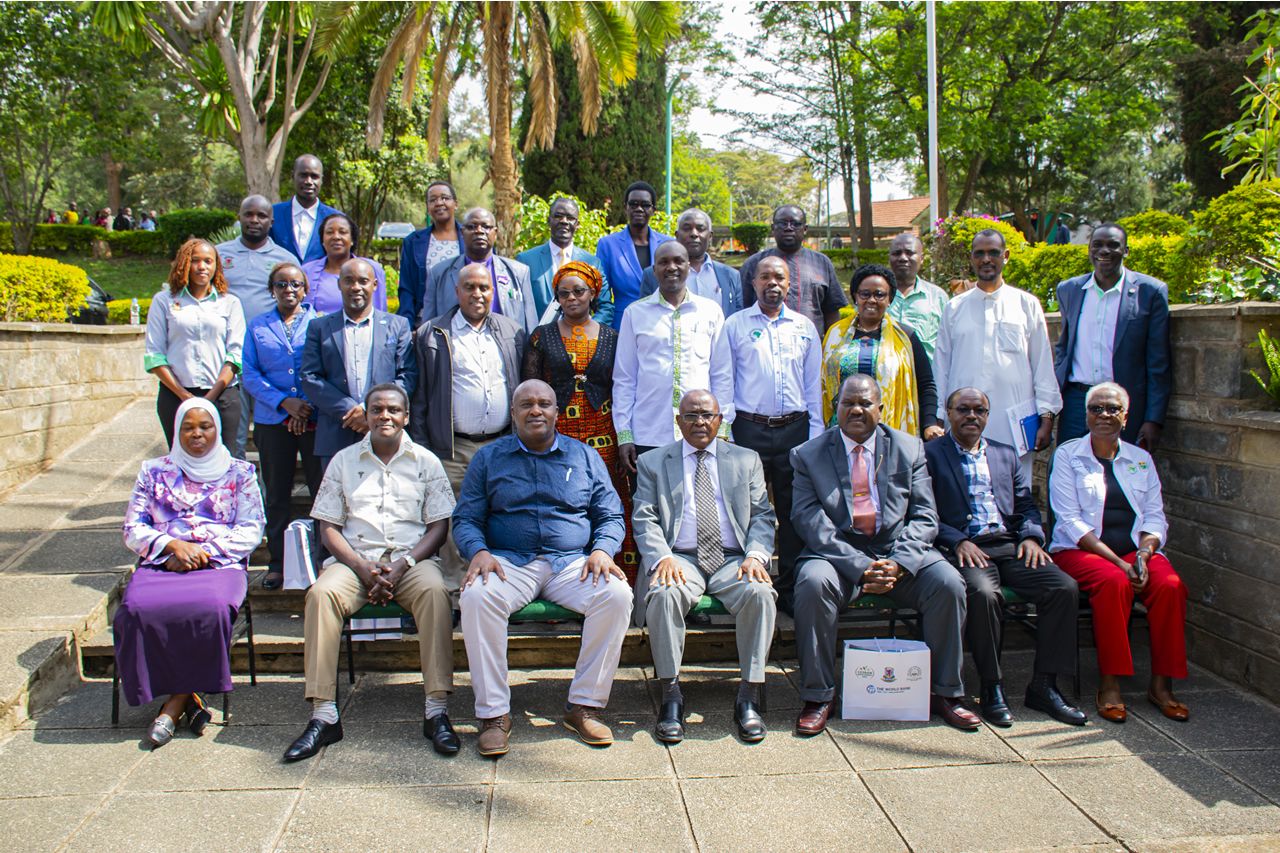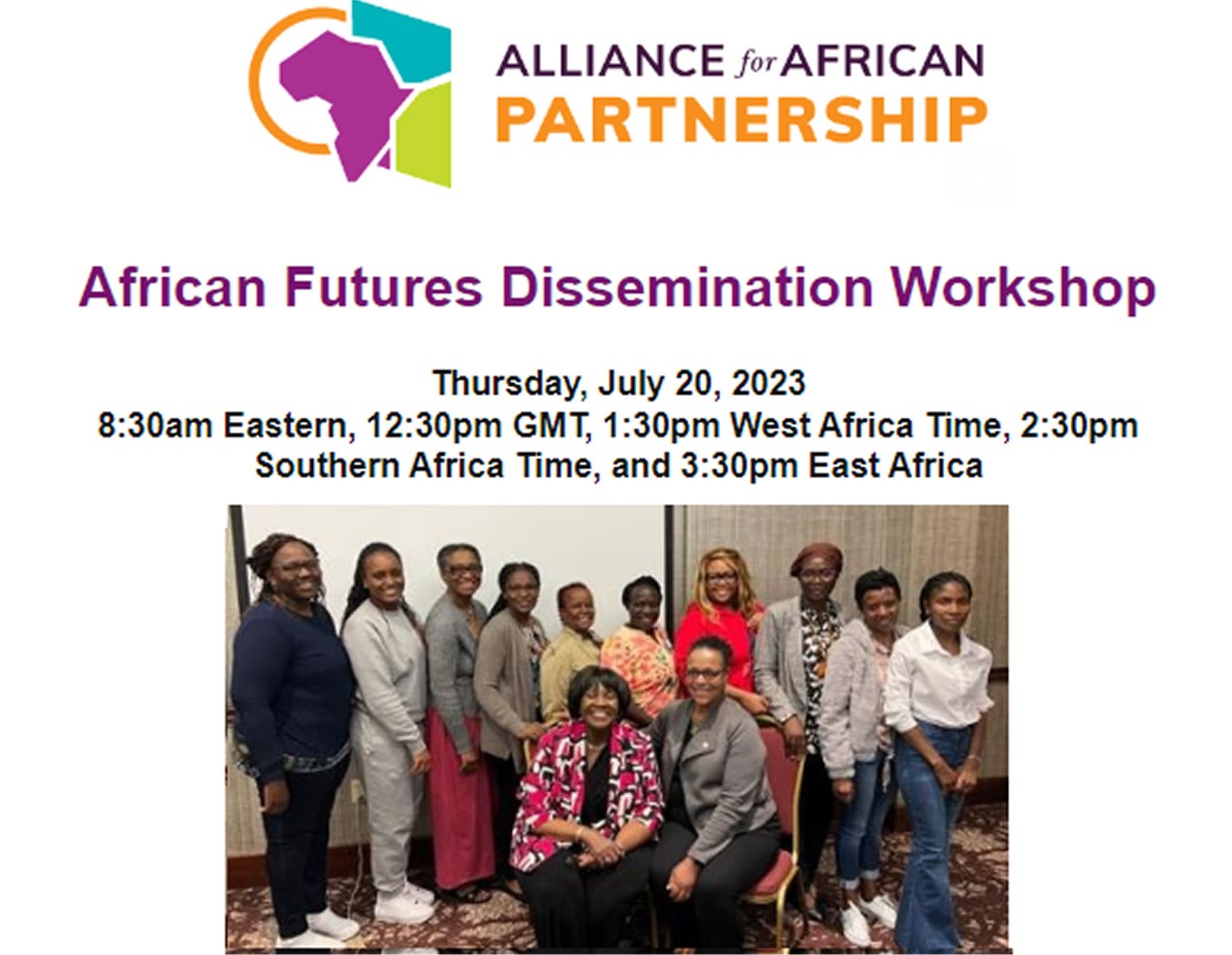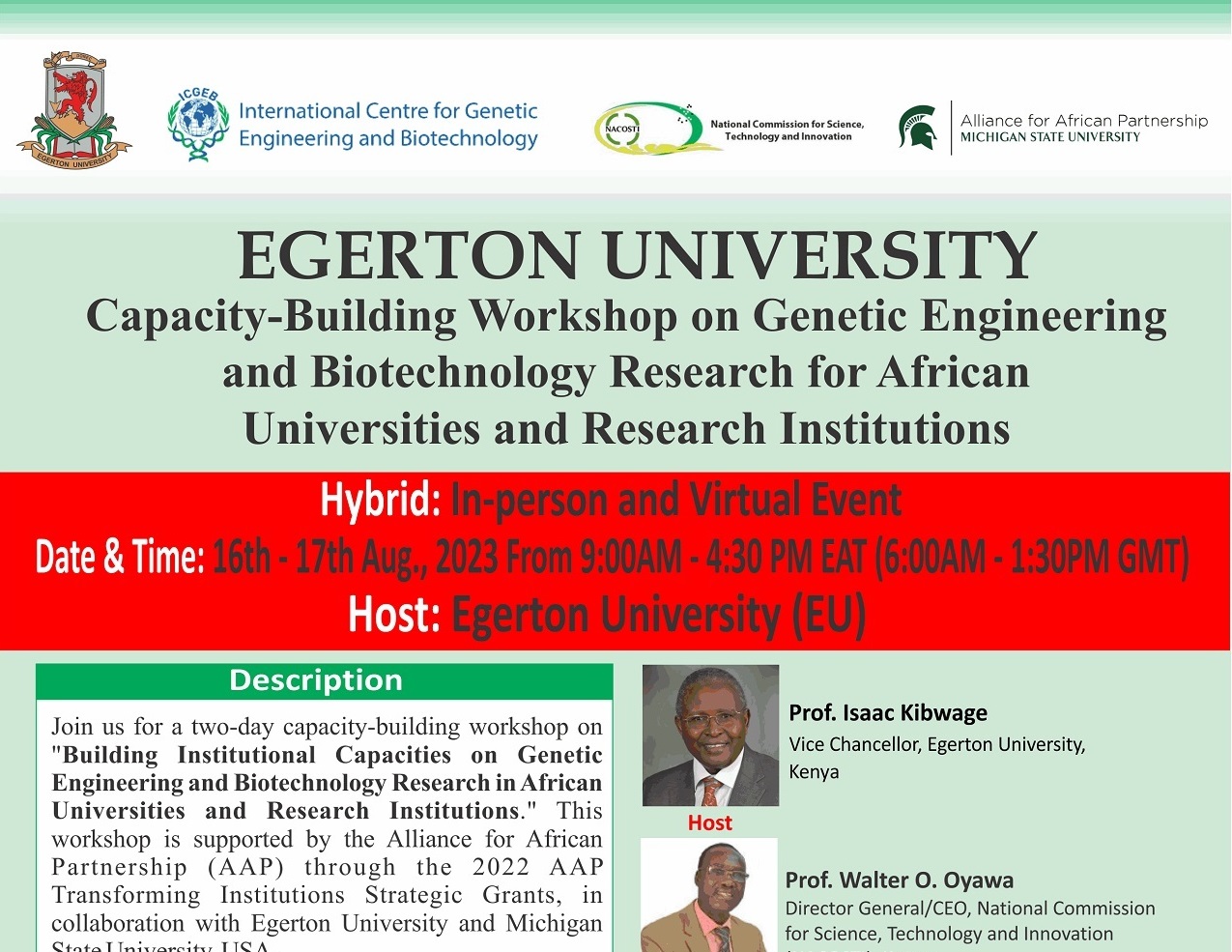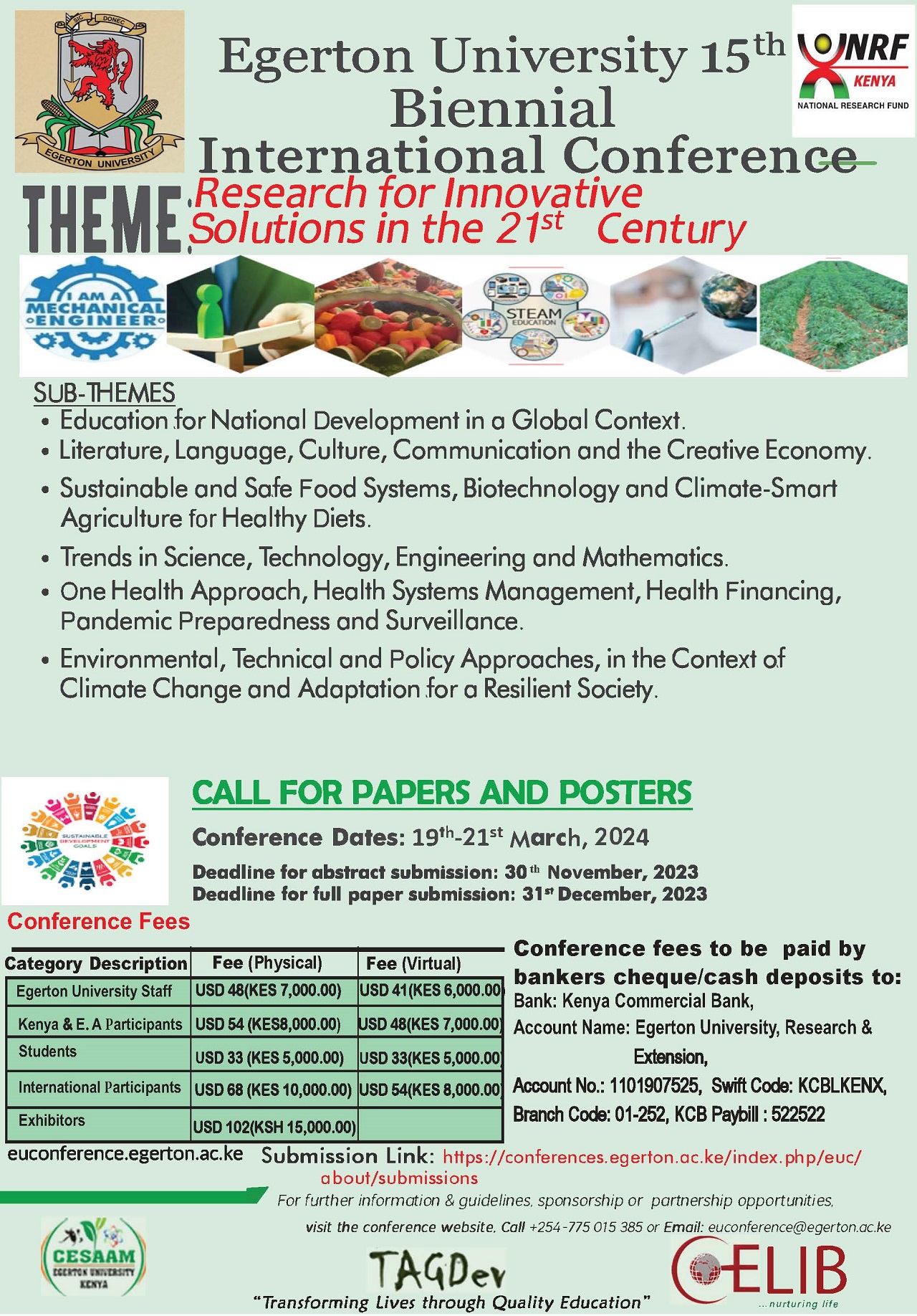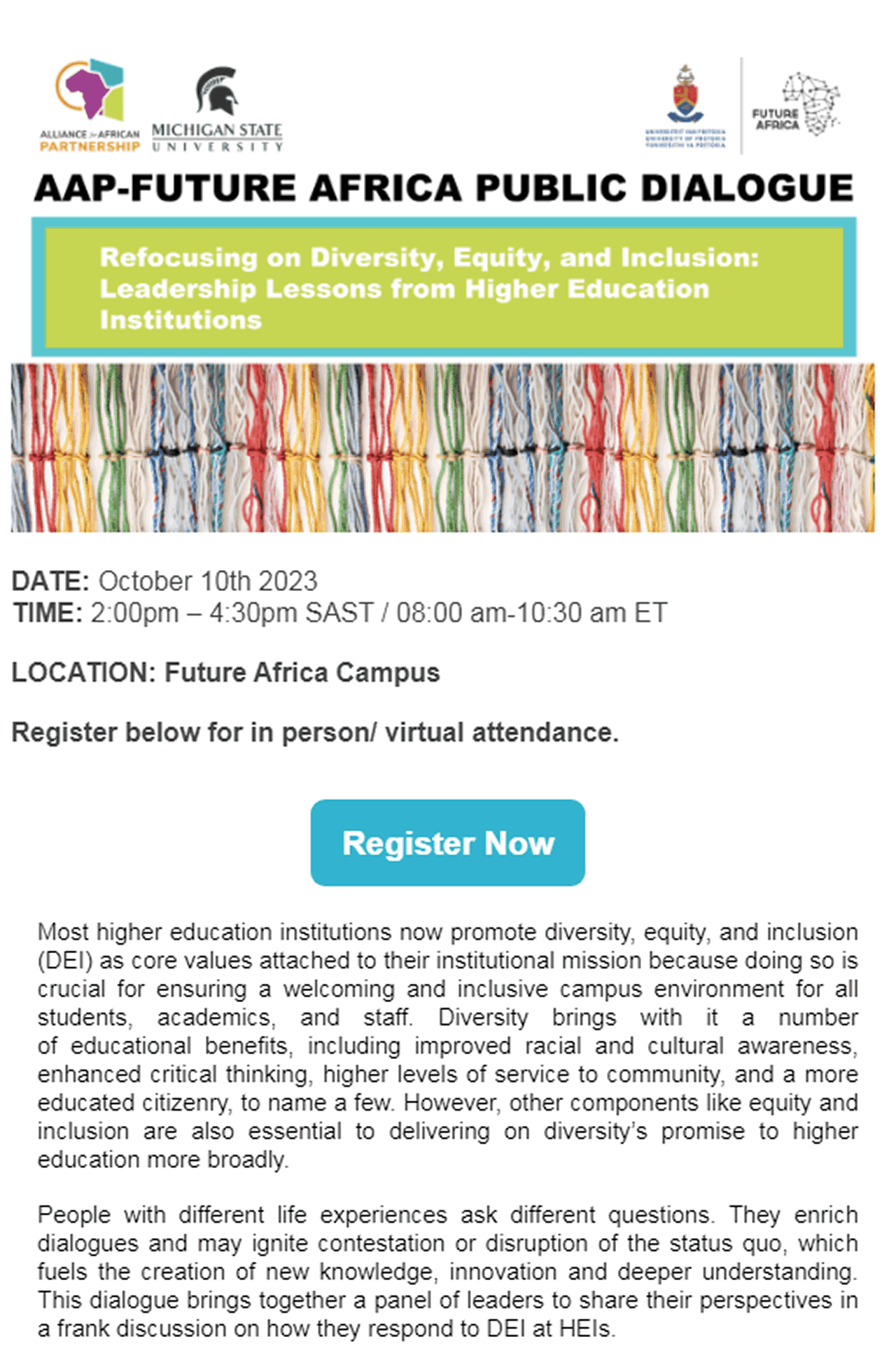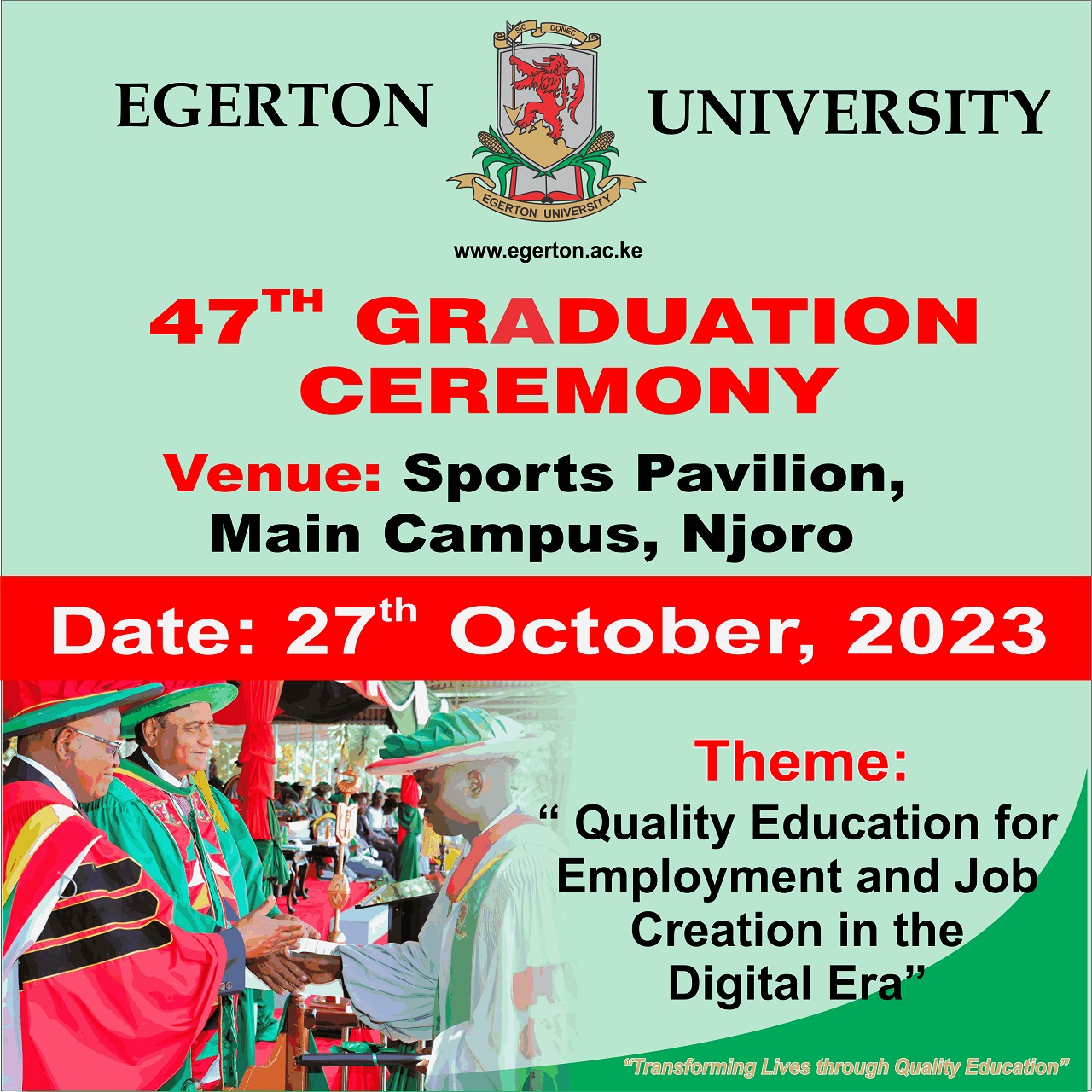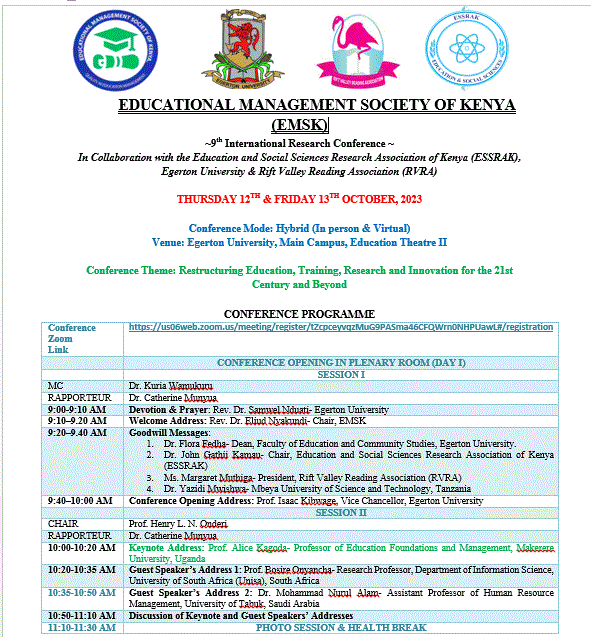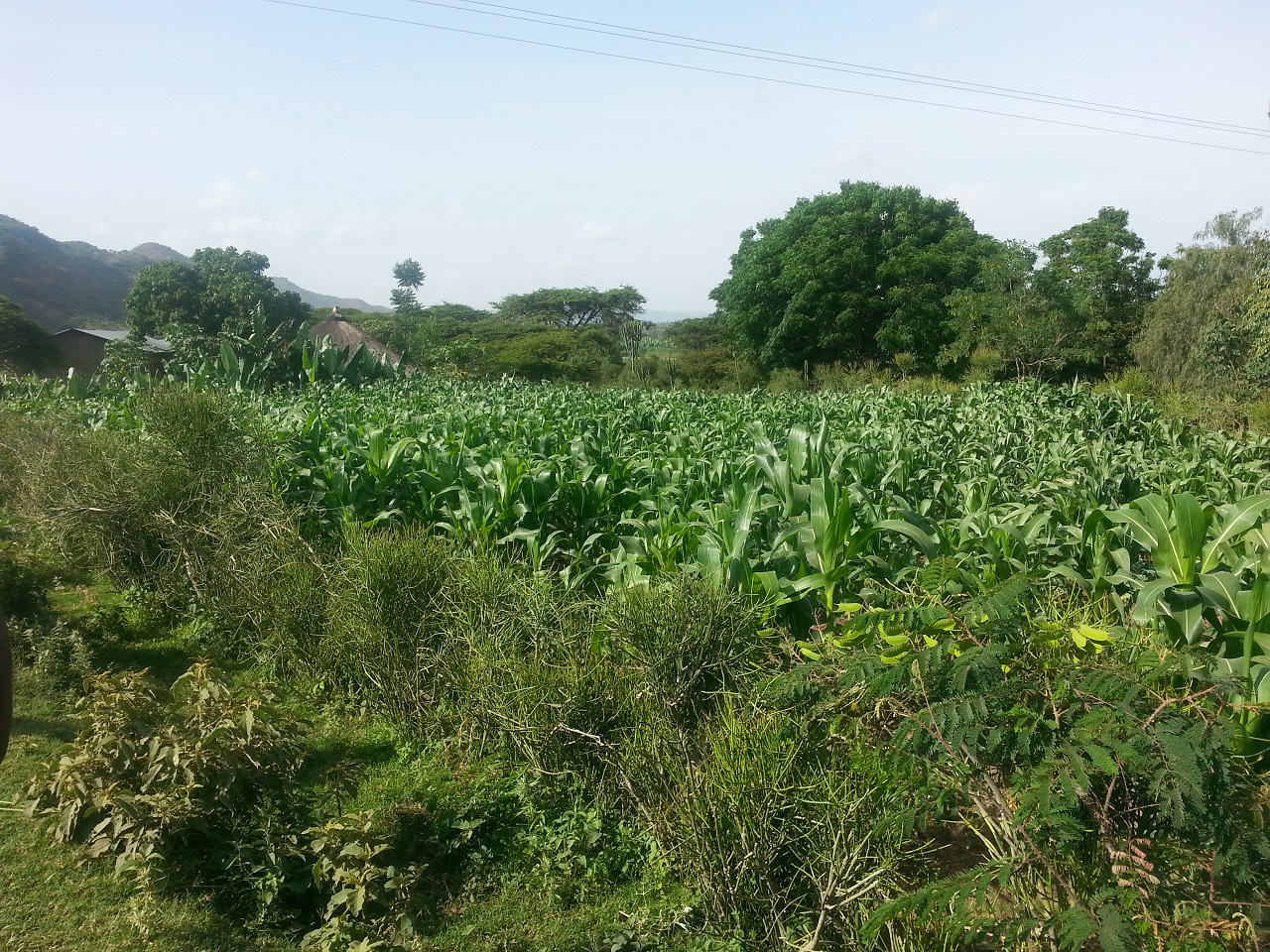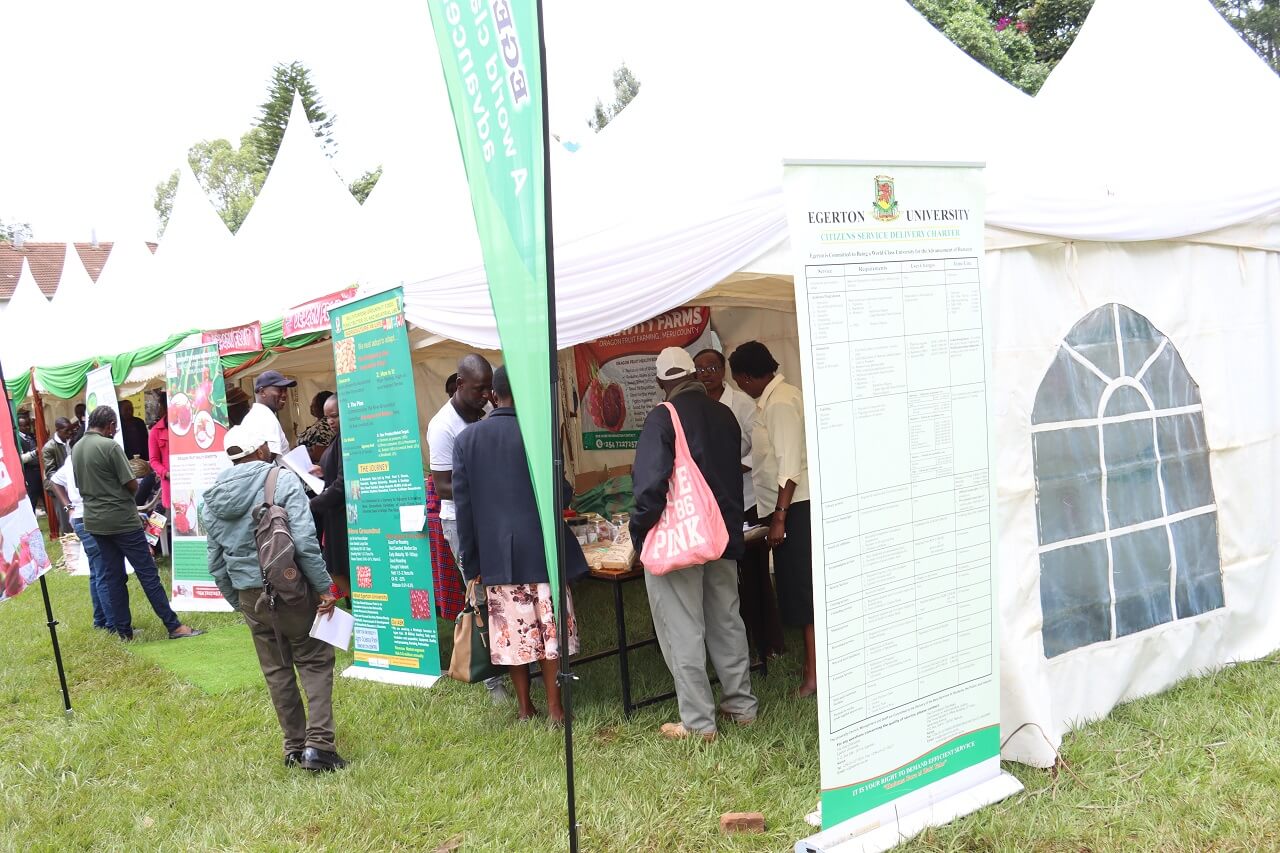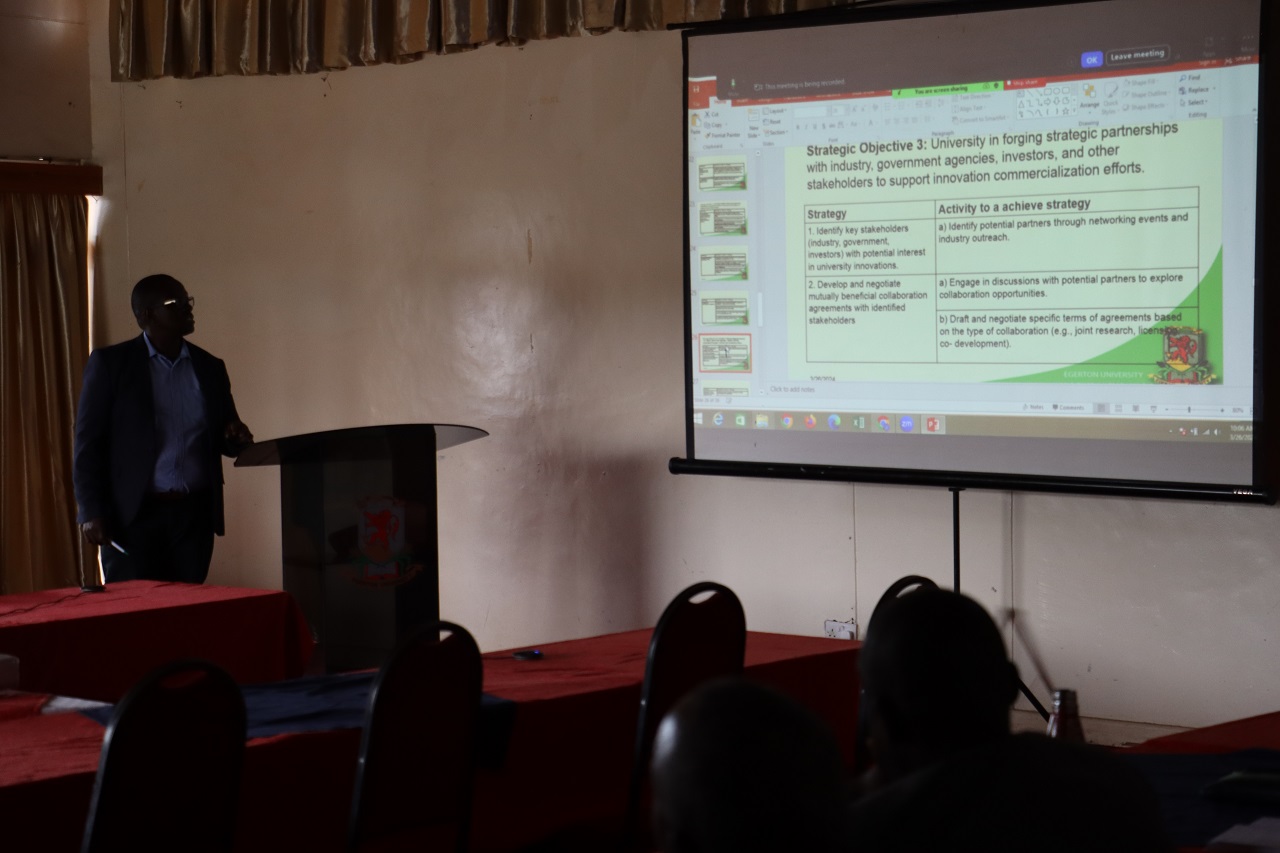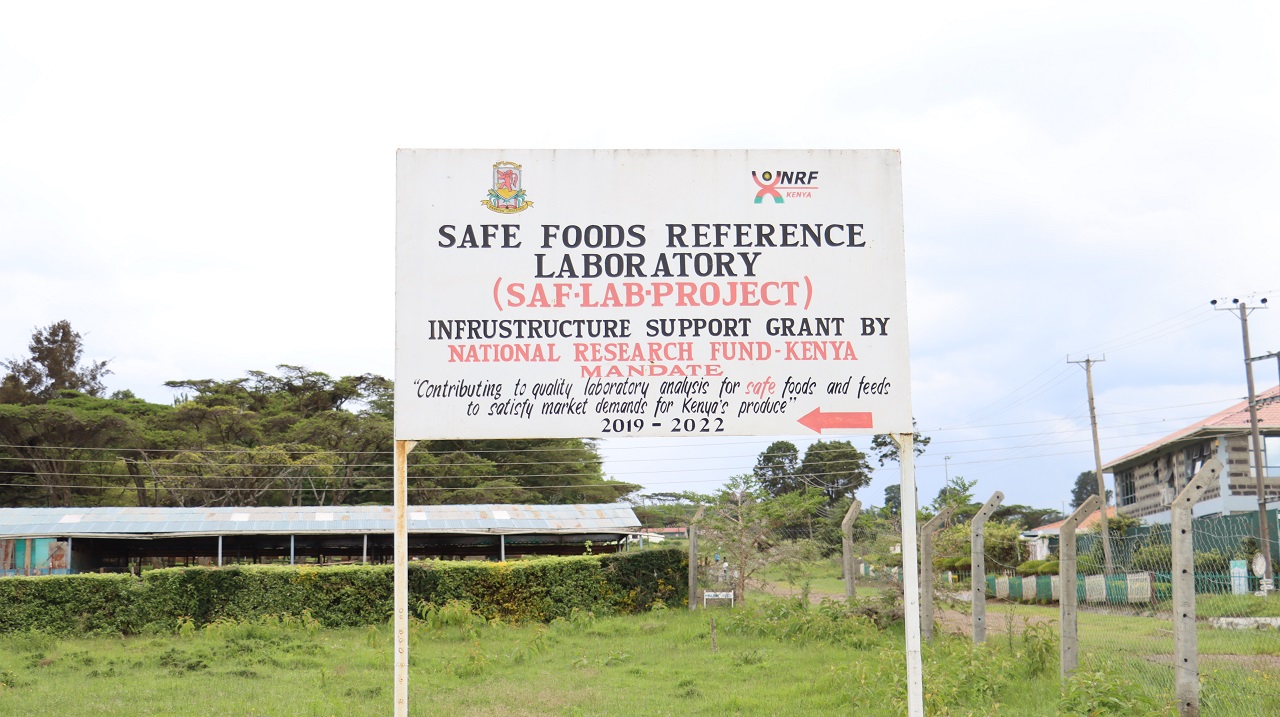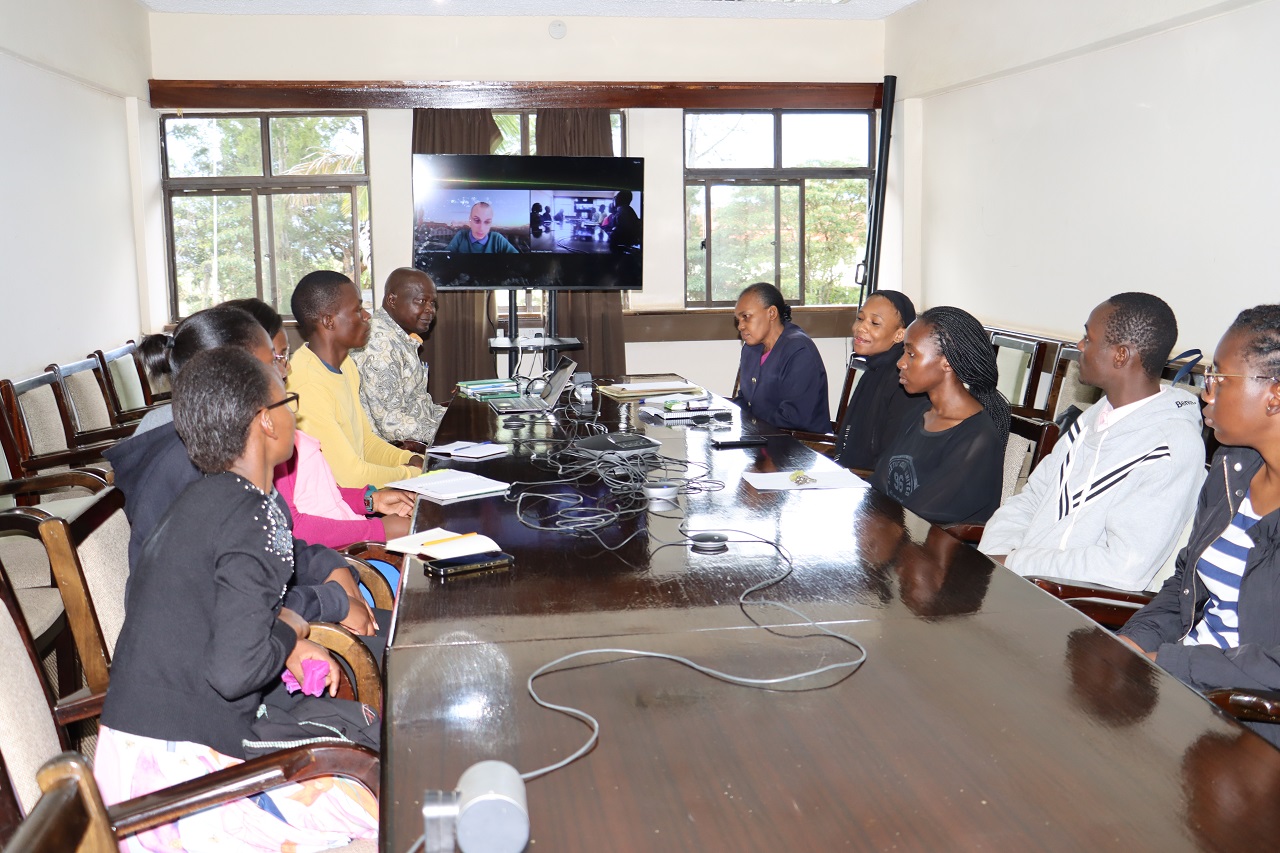-

Egerton University is seeking to boost value addition for cassava, which is largely consumed as subsistence food in Eastern Africa’s rural households.
The programme funded by Community Action Research Project (CARP+), Regional Universities Forum for Capacity Building in Agriculture (RUFORUM) and the MasterCard Foundation also targets to create jobs, increase food and nutrition security, as well as improve cassava quality, productivity and its marketability both locally and abroad.
-
Researchers from Florida Agricultural & Mechanical University (FAMU) and the University of Maryland Eastern Shore (UMES) paid a courtesy call to the Vice-Chancellor on 7th June 2022 at Main Campus in Njoro.
-

Egerton University is partnering with Wageningen University (the Netherlands) to implement the REFOOTURE project in Kenya. REFOOTURE, an acronym for Regenerative Food and Future, is funded by the IKEA Foundation. It is mobilising innovation capacity and strengthening the enabling environment through living labs in East African countries of Kenya, Ethiopia and Uganda.
-

In a significant stride towards fostering international collaborations and bridging relations between Kenya and Indonesia, the Indonesian Ambassador to Kenya, Dr Mohamad Hery Saripudin, together with the Director of Global Connectivity at IPB University in Indonesia, Dr Eva Anggraini, paid a courtesy call on the Vice Chancellor of Egerton University, Prof. Isaac Kibwage, on June 22, 2023. The meeting, held at the Main Campus in Njoro, aimed to map out a way forward for future partnerships between IPB University and Egerton University.
-

Senior members from the State Department of Higher Education and Research, led by the Director, Mr Darius Ogutu, on Friday 23rd June 2023 were at Main Campus in Njoro for the Africa Higher Education Centre of Excellence (ACE) National Steering Committee meeting.
The team was received by Vice Chancellor Prof. Isaac Kibwage and Prof. George Owuor, Centre Director, the Centre of Excellence in Sustainable Agriculture & Agribusiness Management (CESAAM).
-

The Alliance for African Partnership (AAP) would like to invite you to join the African Futures Scholars for their virtual Dissemination Workshop to share the work that they have done while at Michigan State University (MSU).
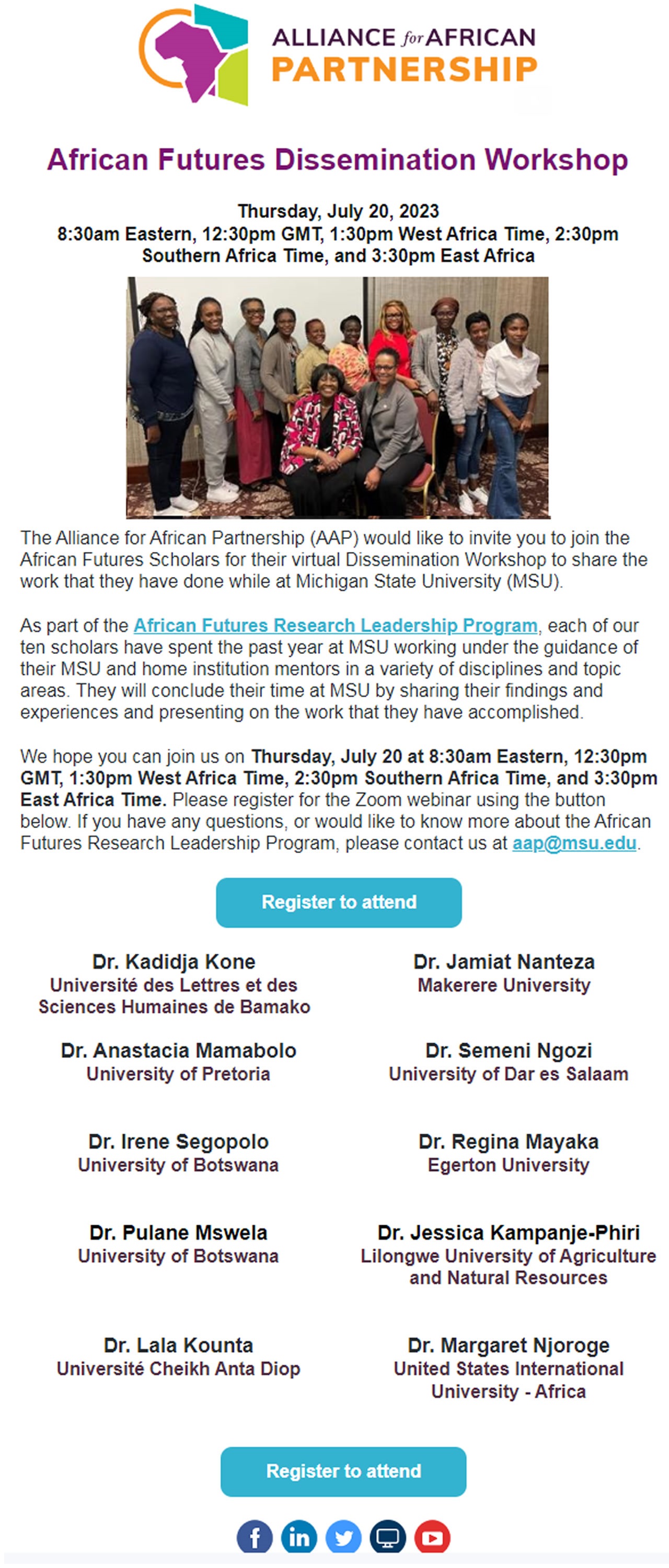
-

Egerton University, through the Kenya Climate Smart Agriculture Project (KCSAP) a Government of Kenya project jointly supported by the World Bank has been actively involved in supporting farmers through various training and extension services.
KCSAP has been implemented over a five-year period (2017-2022) under the framework of the Agriculture Sector Development Strategy (ASDS) (2010-2020) and the National Climate Change Response Strategy (NCCRS, 2010).
-

Join us for a two-day capacity-building workshop focused on Genetic Engineering and Biotechnology Research, aimed at building institutional capacities in African universities and research institutions.
Click The Link Below To Join The Zoom Meeting;
https://egerton-ac-ke.zoom.us/j/98429894066?pwd=L05BblovMzZwcmNVT1BVNlcrSTd6UT09
Meeting ID: 984 2989 4066
Passcode: 569327
Download the ICGEB RRC Workshop Programme Here
Click Here To Register
-

Egerton University has been ranked at position 2,606 in the world, 85 in Africa and position 4 in Kenya. The methodologies used for the rankings are:
1. Visibility/Impact: Number of external networks linking to the institutional webpage (journals linked to the Egerton website). This carries a weight of 50%. For this parameter, Egerton University ranked at position 2,344 in the world, 32 in Africa, and 4 in Kenya.
2. Transparency/Openness: Top cited researchers. Number of citations from Top 210 authors. This carries a weight of 10%. For this parameter, Egerton University was ranked 2,855 in the world, 143 in Africa and 7 in Kenya.
3. Excellence/Scholar: Top cited papers. Number of papers amongst the top 10% most cited in each one of all 27 disciplines of the full database. This carries a weight of 40%. For this parameter, Egerton University attained position 3,716 in the world, 209 in Africa and 5 in Kenya. -

-

THEME:Research for Innovative Solutions in the 21st Century Click to submit
-

-

-

-

In the picturesque landscapes of rural Kenya, smallholder farmers are embarking on a journey towards sustainable agriculture. Armed with determination and resilience, they are weaving together a tapestry of practices aimed at enhancing crop yield while safeguarding precious soil fertility. Yet, amidst this noble endeavor, a crucial question lingers: What factors drive the adoption of these sustainable practices, and what are their real-world impacts?
Enter a team of researchers: Gideon Aiko Obare (Egerton University, Kenya), Wilckyster Nyateko Nyarindo (University of Embu, Kenya) Amin Mugera and Atakelty Hailu (University of Western Australia, Australia), and Their complex yet insightful study, published in a prestigious Agricultural Economics journal, offers a glimpse into the intricate dynamics of sustainable agricultural intensification (SAI) adoption among smallholder maize-legume producers in Kenya.
Through a meticulous three-wave panel survey, the researchers delve deep into the adoption patterns and outcomes of ten SAI practices, clustered into five distinct groups. Employing sophisticated statistical models, they dissect the plot-level choices of farmers, shedding light on the underlying factors driving adoption decisions.
What emerges from their analysis is a nuanced portrait of smallholder farming realities. Factors such as the frequency of extension contacts, farm labor availability, household wealth, and the education level of household heads emerge as pivotal influencers, positively shaping the adoption of SAI practices.
Conversely, challenges such as land tenure insecurity and poor soil quality cast a shadow, highlighting the complex interplay of socio-economic and environmental factors at play.
But the study's insights extend beyond mere adoption trends. By employing a multinomial endogenous treatment effects model, the researchers uncover a kaleidoscope of outcomes across the five SAI clusters.
From variations in crop yield and revenue to fluctuations in total variable costs and net income, the study paints a vivid picture of the diverse impacts of sustainable farming practices. Importantly, these impacts are not uniform, varying according to crop systems, geographical regions, and cropping years.
However, amidst this variability lies a glimmer of hope. The study challenges the notion of a one-size-fits-all extension approach, advocating instead for participatory policies that empower farmers to co-create and disseminate locally adaptable SAI bundles.
By tailoring interventions to suit the unique needs and preferences of each community, policymakers and extension agents can unlock the full potential of sustainable agriculture.
Indeed, the implications of this research are profound. As the global community grapples with the twin challenges of food security and climate change, initiatives that empower smallholder farmers to embrace sustainable practices take on added significance.
With insights gleaned from studies such as this, stakeholders are better equipped to chart a course towards a more resilient, equitable, and environmentally sustainable agricultural future.
Story by: Kurian Musa, Egerton University.
Email:
This email address is being protected from spambots. You need JavaScript enabled to view it. /This email address is being protected from spambots. You need JavaScript enabled to view it. -

Egerton University recently participated in a two-day open session held at KALRO Kabete, where it showcased a range of agricultural innovations and promoted its academic programs from undergraduate to postgraduate levels.The university's delegation included Dr. Karanja Kinuthia, an Agricultural Biotechnology specialist, Ms. Serah Njambi from the Directorate of Marketing and Resource Mobilization, Mr. Kurian Musa, the Communication Officer, Ms. Celestine from the Admissions Office, Mr. John Supeiyo, a Research Assistant at the Agro-Science Park, and Haron representing the TAGDEV Project.
-

By Kurian Musa
In a bold move towards fostering innovation, education, and economic growth, Egerton University has announced the development of its Innovation Entrepreneurship and Commercialization Master Plan (IECMP). This strategic initiative signals a pivotal moment in the institution's journey towards becoming a world-class hub for entrepreneurship and societal advancement.
-

BREEDTECH is a three year (2024-2027) cross regional project which has brought together a consortium of Higher Education Institutions (HEIs). The project involves, ten partner and one associate partner institutions from seven countries (Kenya, Ethiopia, Palestine, Italy, Sweden, Serbia and Austria).
-

In the heart of Egerton University’s Main Campus lies a laboratory that is transforming the country’s agricultural sector. The Safe Food Reference Laboratory (SAF-Lab), funded by the National Research Fund, is a hub of innovation, research, and practical solutions. At the forefront of this revolution is the Aloe Secundiflora Innovation Project, led by Professor Charles Muleke Inyagwa.
-

To safeguard Kenya’s food heritage, nine students from Egerton University recently completed a specialized training programme on documenting traditional foods that are slowly vanishing but remain rich in health benefits.
Page 1 of 2





